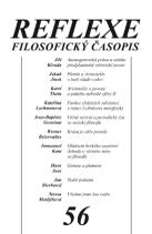The Theory of Postulates and Rational Faith
The postulates of the immortality of soul and the existence of God in Kant’s Critique of Practical Reason are presented as an organic result of the ethics of the good will. This result reflects the very specific spontaneous-receptive constitution of this will as the will of a finite reasonable being. The postulates, insufficient with respect to theoretical knowledge, are objects of faith of reason. This specific epistemic status, called “insufficient sufficiency”, is the expression of a synthetic, practical-as-well-as-theoretical use of reason, which is sufficient only for will related to the commitment of the highest good.
Backlinks: Reflexe 46
